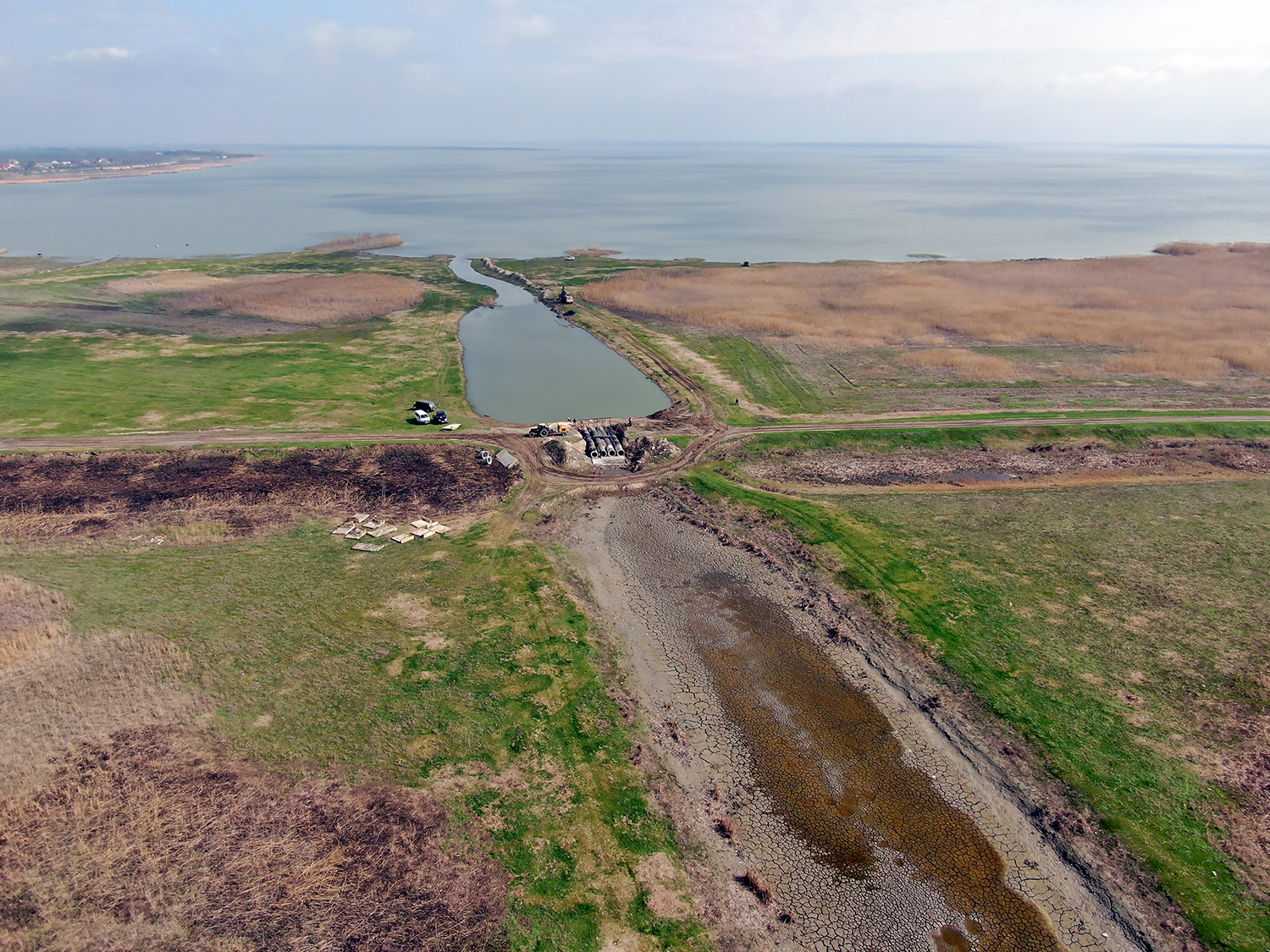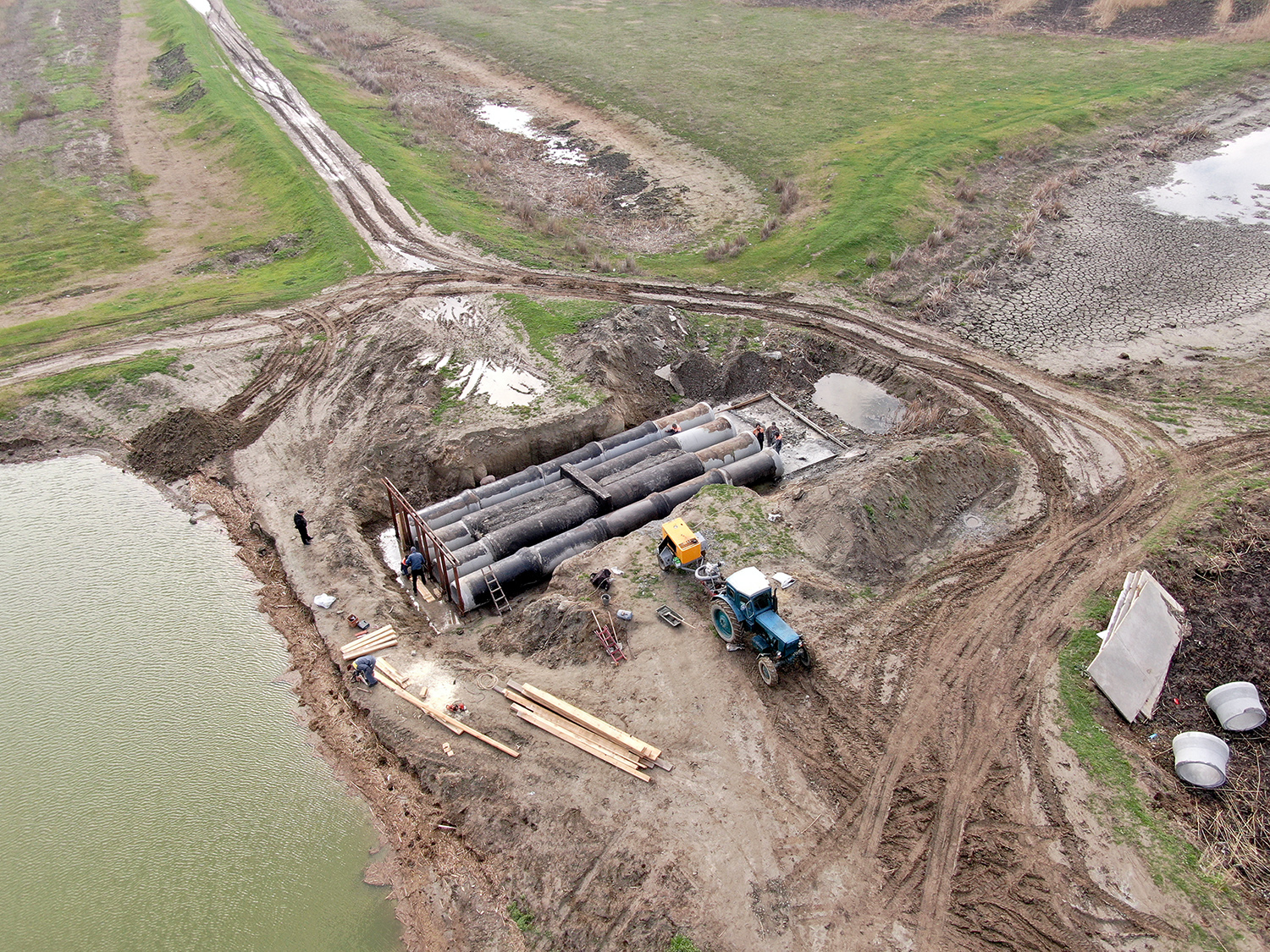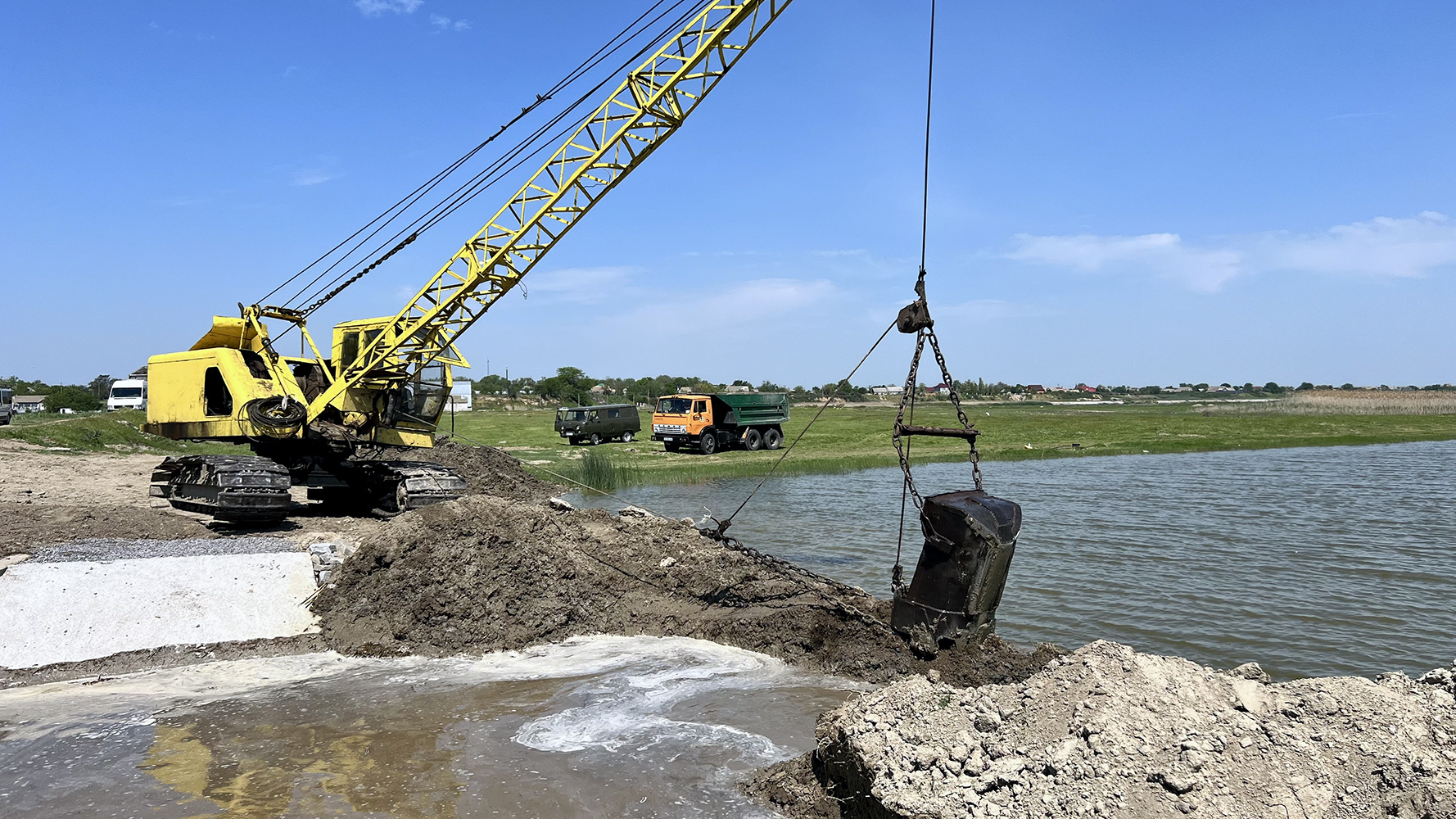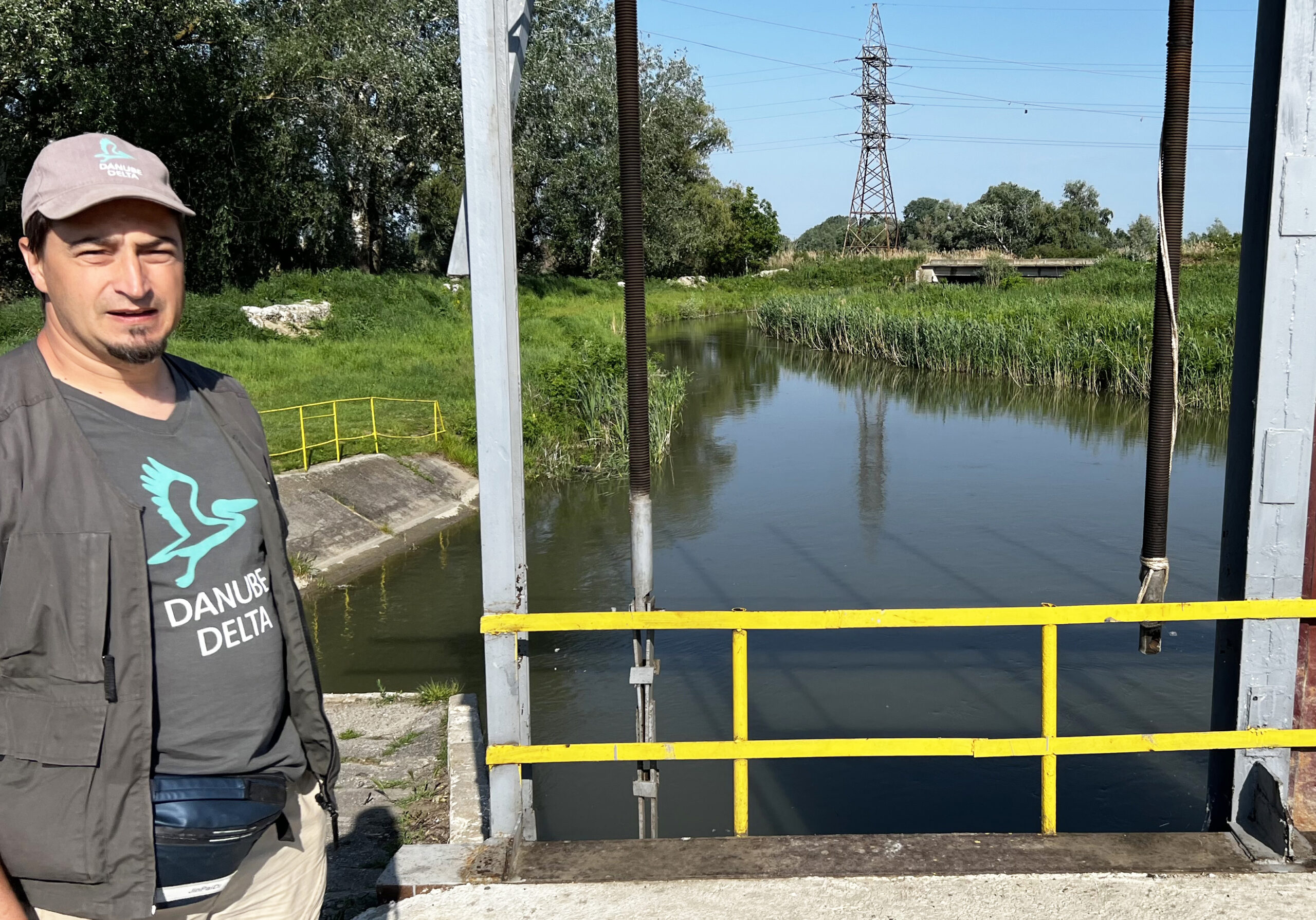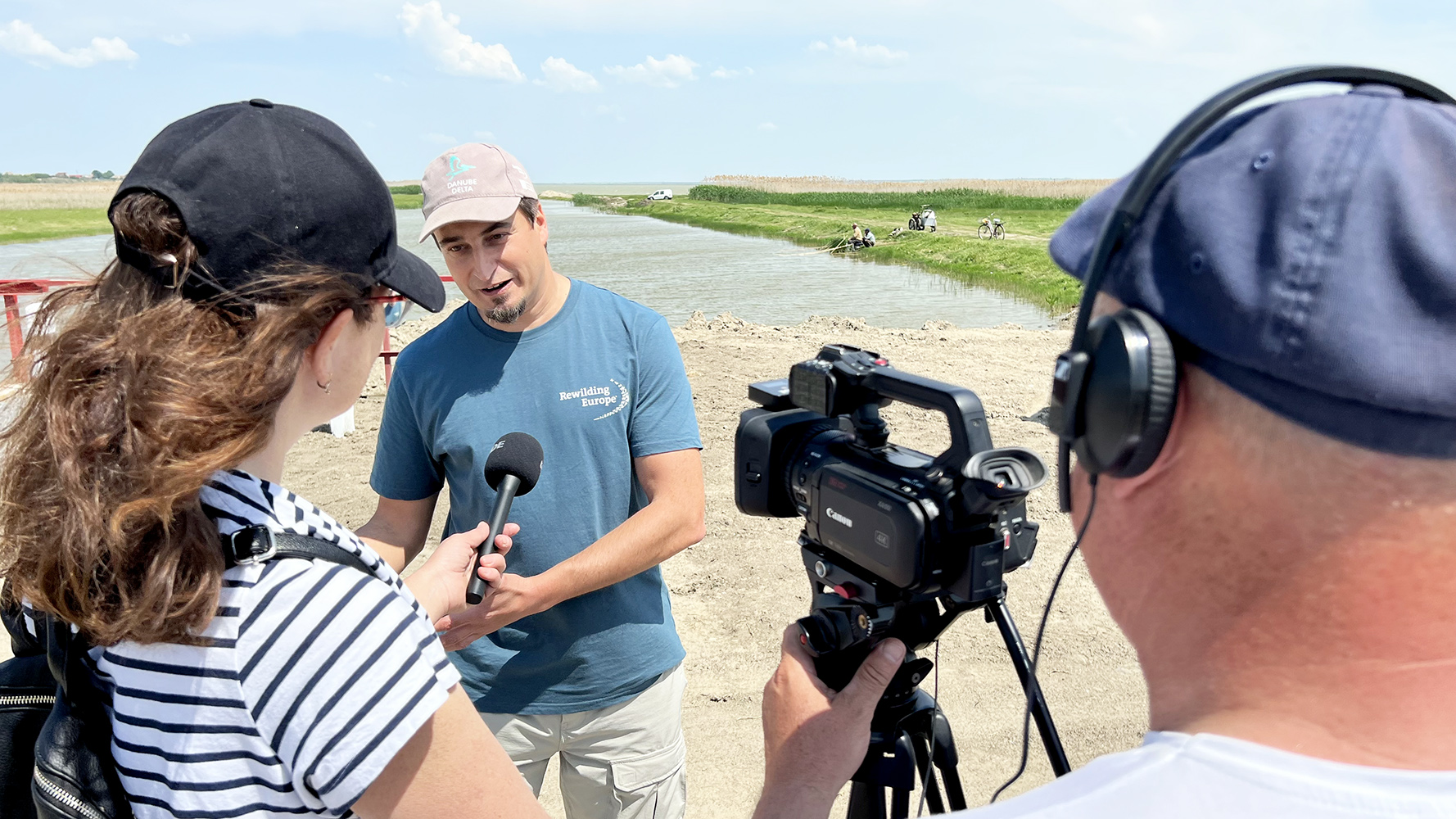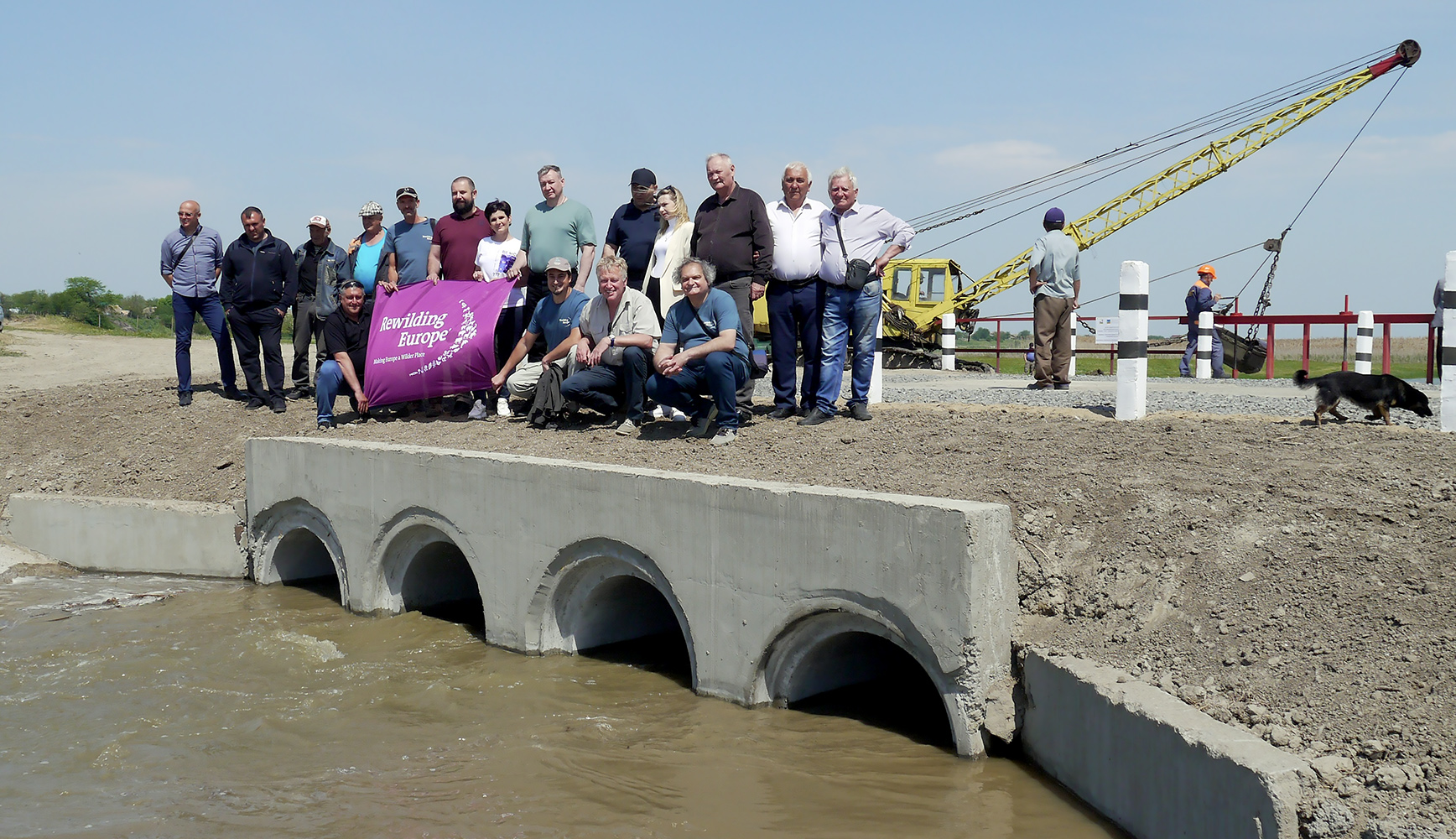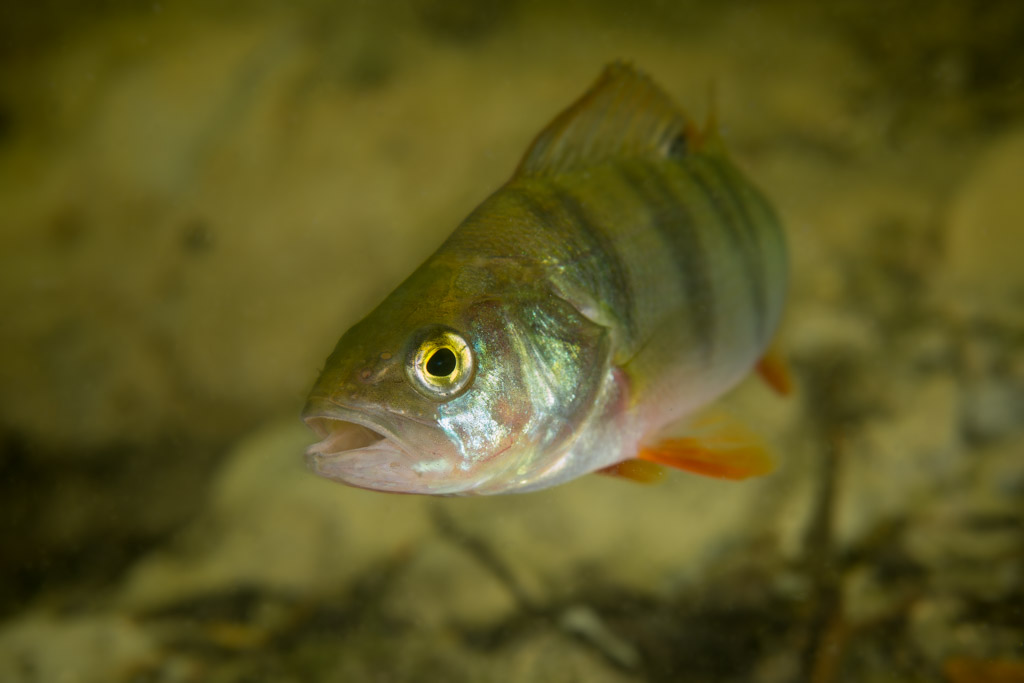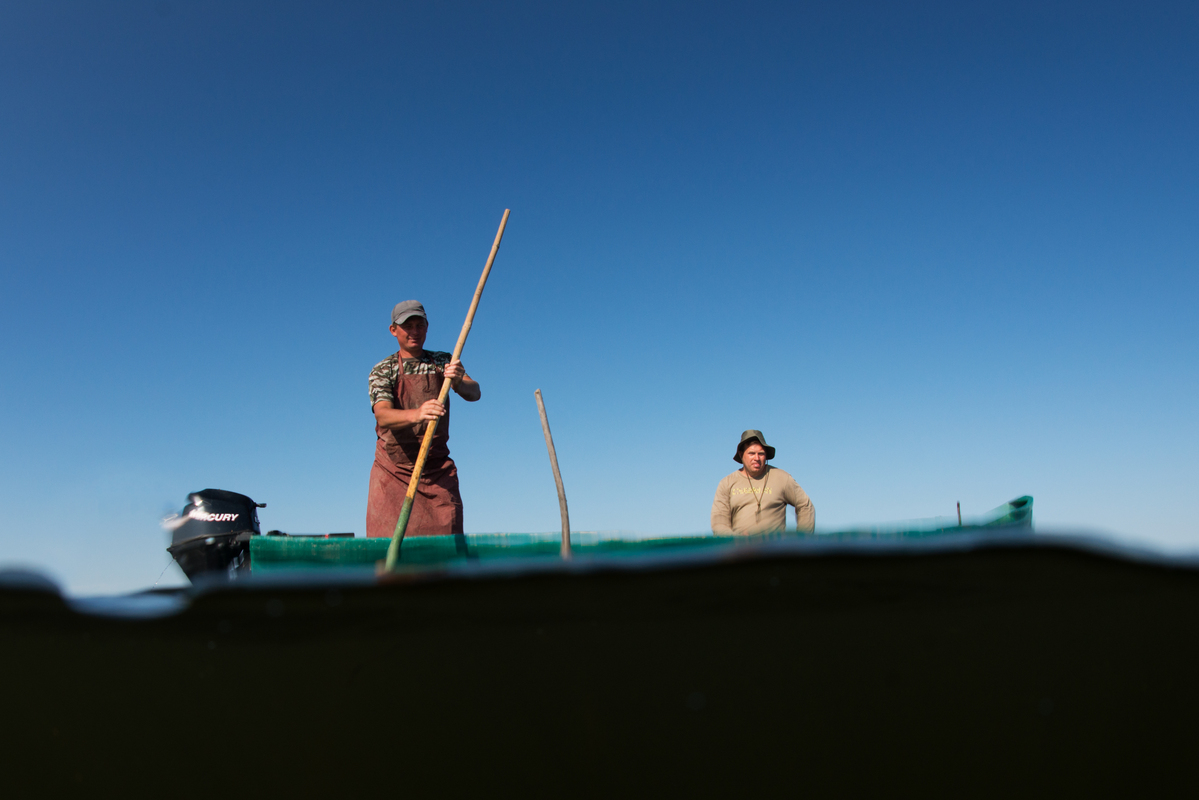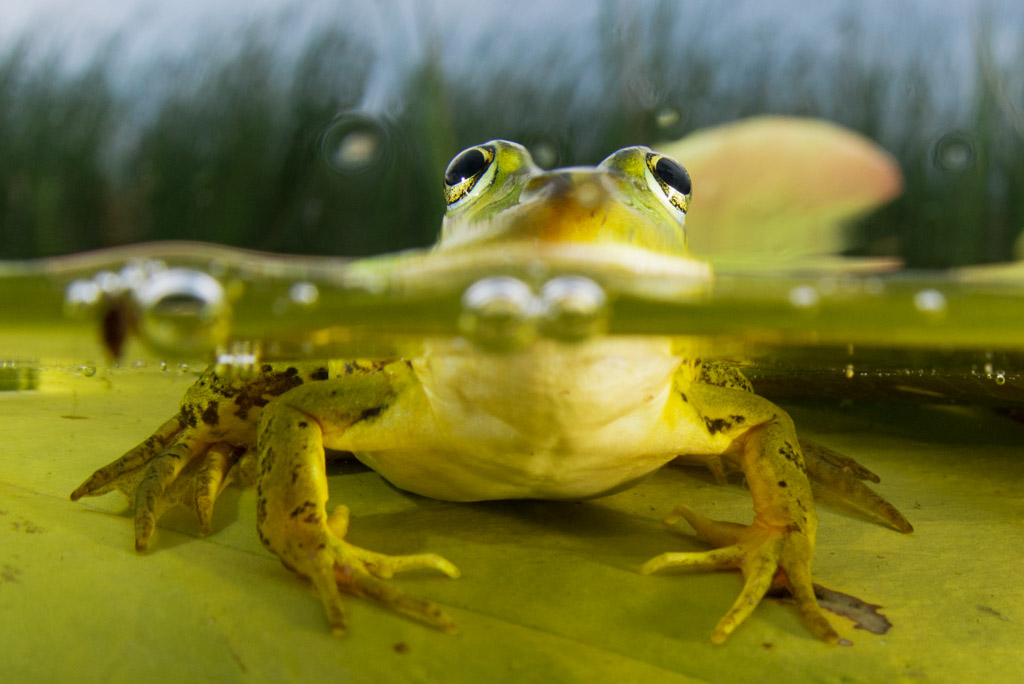The Rewilding Ukraine team have been working together with local partners to restore the connectivity of floodplains in the Danube Delta since 2019. By connecting Katlabuh Lake with the Danube River, their latest efforts are a step towards revitalising an entire chain of water bodies, with wide-ranging benefits for nature, local communities and society.
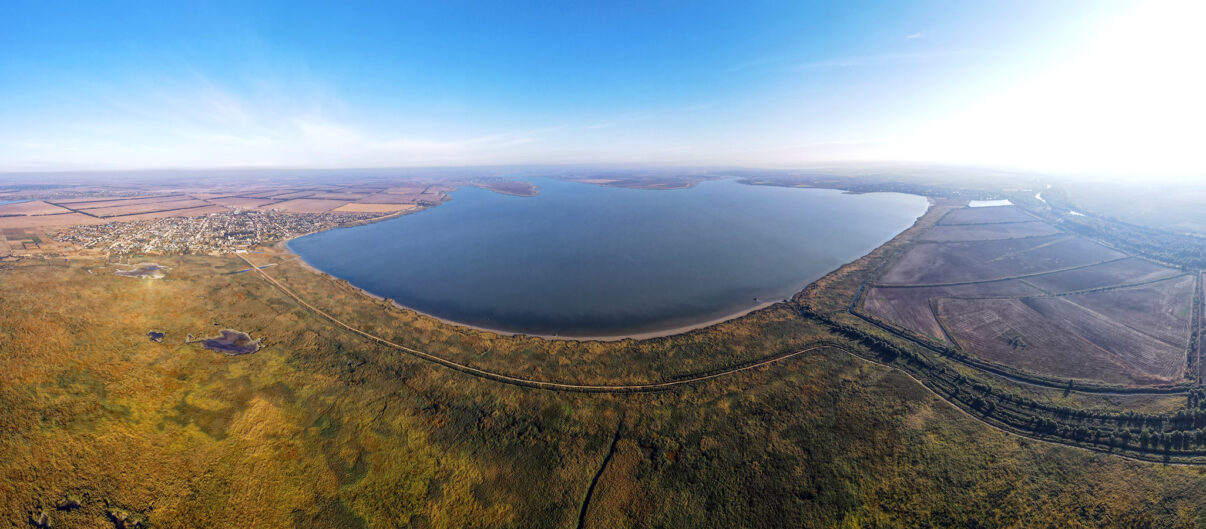
Towards a wilder delta
The sprawling Danube Delta, which is largely divided between Romania and Ukraine, is Europe’s largest river delta wetland. Yet large-scale hydro-engineering work carried out here in the twentieth century – which primarily involved the creation of an extensive network of canals and dykes, and agricultural polders – has had a hugely negative impact, altering natural water flow and sedimentation patterns, disconnecting floodplains, and diminishing the ability of the delta to recycle nutrients. This has not only had a detrimental effect on nature, but local communities and economies too, with isolated water bodies growing increasingly stagnant, deteriorating water quality and fish stocks and biodiversity in long-term decline.
Supported by funding from the Endangered Landscapes Programme, ongoing work carried out by the Rewilding Ukraine team and the Izmail Department of Water Resources is now breathing new life into the Danube Delta and its communities as connectivity and water flow are restored. The latest stage of this work, which was carried out in May, saw the Danube River and the giant Katlabuh Lake reconnected via the Staronekrasivski Wetlands. Enhancing natural processes such as natural water flow and enabling them to reshape the landscape is part of the overall rewilding vision for the delta. Together, they form a wetland area of over 8,500 hectares, one of the major lake systems on the Ukrainian side of the delta.
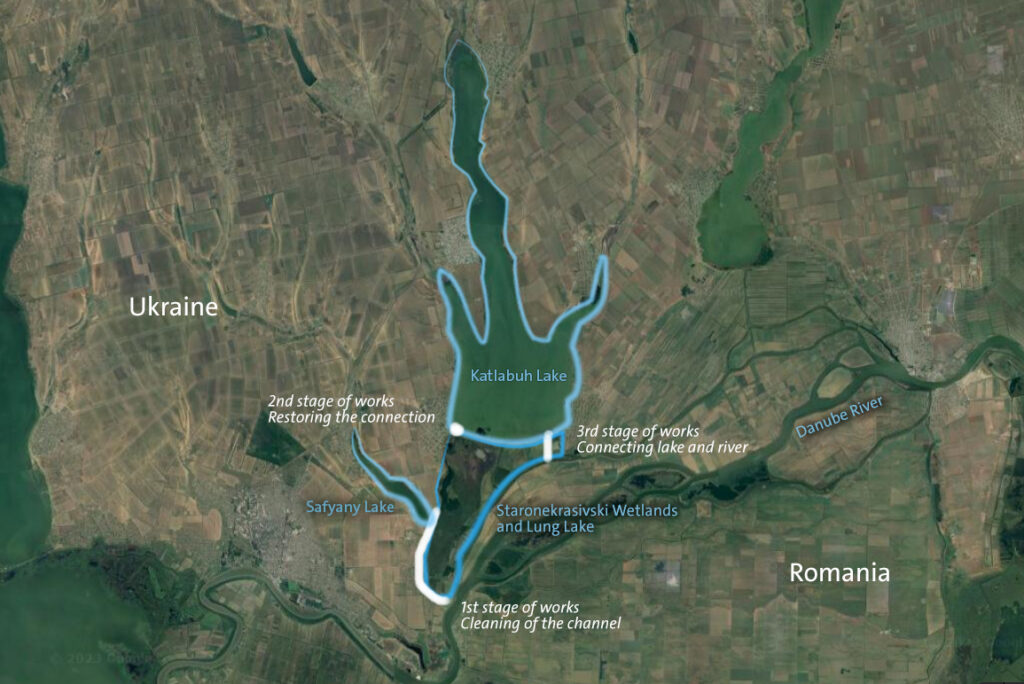
Multiple benefits
The latest restoration work means that the Staronekrasovsky Wetlands and part of Katlabuh Lake can once again follow the dynamic water patterns of the Danube. Going beyond this – and building on work carried out previously – the work is an important step towards restoring water exchange between a whole system of lakes, which would support the return to health of the Safyany and Lung Lakes, as well as the Staronekrasivski Wetlands themselves.
Across the landscape, water quality is on the rise. Fish and other wildlife populations are growing and diversifying, while the rewetting of large marshland areas is enhancing carbon storage, thereby helping to mitigate climate change. Local communities that depend on reliable sources of clean water and fish are increasingly seeing the benefits.
“The Staronekrasivski Wetlands can function as a dynamic biofiltration system, purifying water before it enters the lake,” explains Oleg Dyakov. “The water flow through the entire lake system is now far more natural, although it can still be regulated – water can flow from the Danube through the wetlands into Katlabuh, and vice versa if necessary. This year the water level in the Danube is very high, allowing water from the river to fill the entire lake system. The opening of the sluice to connect the Staronekrasivski Wetlands with Lake Katlabuh is already leading to an impressive amount of water flowing into the lake.”
Future focus
In collaboration with partners, the Rewilding Ukraine team will continue their efforts to revitalise the Danube Delta’s aquatic landscape. In the summer a number of channels and waterways within the Staronekrasivski Wetlands will be restored, and a management plan for the wetlands and the water regime of the entire system will be developed and put into action.
There are also plans to complete work started by WWF around 15 years ago, which involves the construction and operation of a bridge and lock near the village of Kyslytsia, as well as the clearance of connecting channels, which will see direct water exchange restored between Lake Katlabuh and the Danube River.
In a recent trip to the Danube Delta, Rewilding Europe’s Executive Director Frans Schepers met with both the Ukrainian and Romanian directors of the transboundary Danube Delta Biosphere Reserve. They discussed ambitions for scaling up rewilding-based restoration in the Danube wetlands – restoration for which there is huge potential.

